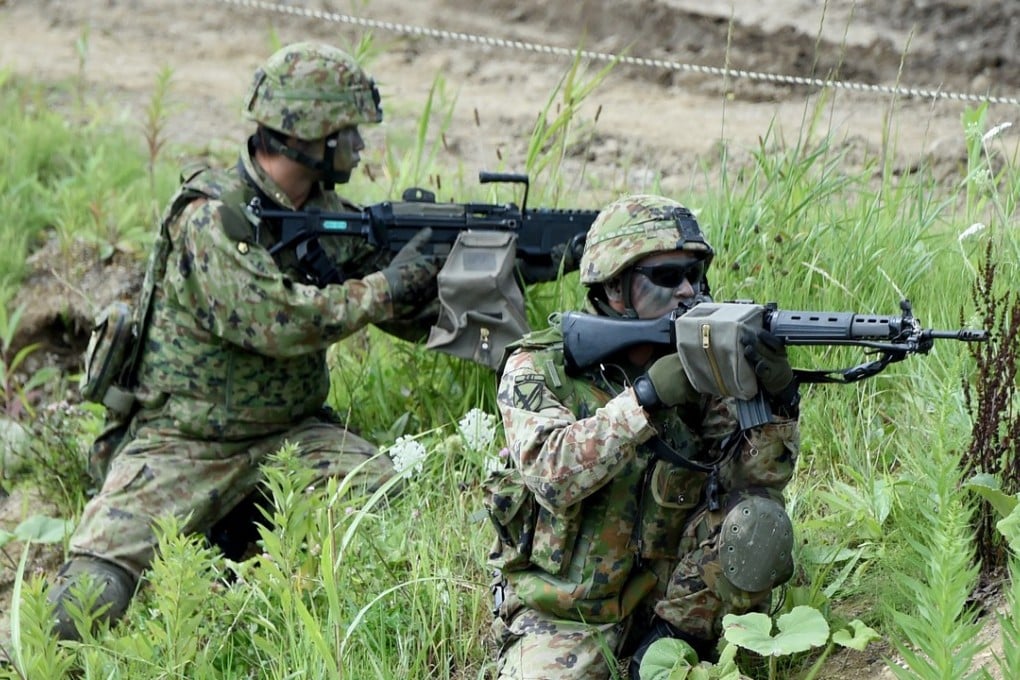Japanese pacifism: an early casualty of a nuclear North Korea?
Japan’s ‘self-defence’ force is among the world’s most powerful militaries but it is hamstrung by a constitution that questions its existence. A North Korean missile passing overhead may help clarify matters...

A senior officer in the Japan Self-Defence Forces (JSDF) presents his meishi name card, a crucial ritual in all formal interactions in Japanese culture. And yet the card of the officer, a stern-faced career soldier with decades of service, is adorned with two uniformed anime-type characters. The juxtaposition of cute anime characters with Japan’s de facto military is something of an allegory for the contradictions facing the JSDF.
Against the background of rising risk and tensions in East Asia, the JSDF is still severely restricted operationally by Japan’s pacifist constitution, under which many experts question its right to even exist.
WATCH: North Korea fires missile over Japan
Pyongyang’s provocative actions were a sharp reminder of the clear and present dangers facing the country and the JSDF. Add to this an increasingly assertive China, which has tripled its budget in the last decade, cited as a growing danger in the Defence of Japan 2017 White Paper released in August.
North Korea nuclear crisis: time to panic yet?
Despite its constitution, Japan has been gradually increasing its defence budget and has the seventh-most powerful military in the world, according to the Global Firepower Index (GFI). This includes 250,000 active personnel, 700 tanks, 2,850 armoured vehicles, 42 destroyers, 17 submarines, four aircraft carriers, 288 fighters, 287 bombers and advanced missile systems. Although North Korea has a standing army of nearly 1 million, more than 5,000 tanks, twice as many combat planes as Japan, and 76 submarines, it has no destroyers or aircraft carriers. North Korea’s less advanced military hardware and a defence budget one-fifth the size of Japan’s leaves it 23rd in the GFI.